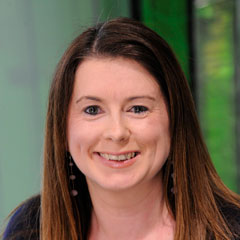Next Generation Sequencing Laboratory Course
21–28 March 2025
Wellcome Genome Campus, UK
Hands-on lab and informatics training for long and short read sequencing
Summary
Next generation sequencing (NGS) has become the premier tool in genetic and genomic analysis. This hands-on laboratory and informatics course is directed at scientists who will be generating and interpreting sequence information in their research and wish to improve their understanding of various sequencing platforms, techniques, and their applications.
Participants will be able to make informed decisions about appropriate techniques to apply in a variety of research contexts. Training will cover applications for target enrichment, bacterial sequencing, cancer genomic analysis, human variation analysis, and RNA-Seq.
What will this course cover?
The programme will include theoretical and practical information on NGS systems currently available and those on the near horizon. Technologies will be chosen from short- and long-read sequencing platforms including:
- PacBio
- Illumina Miseq/HiSeq/Novaseq
- Oxford Nanopore MinION
All the basic techniques of post-sequencing analysis will also be covered in hands-on genomics data analysis sessions including QC, sequence alignment, and variant calling.
Who should attend this course?
Applications are open to clinical, industry, research professionals, and university students who are either engaged in next generation sequencing or are aiming to implement it into their future workflows.
This course is not meant to replace the manufacturers’ training normally supplied with new instruments, nor is it intended to be a training course for those solely interested in NGS data analysis (please refer to our website for dedicated bioinformatics courses).
Learning outcomes
What will you achieve?
Upon completion of the course, participants should be able to:
- prepare high quality sample libraries for use on next generation sequencing platforms
- set up sequencing runs for the various platforms utilised during this course
- critically assess a sequencing run and distinguish between good and poor-quality data
- describe the advantages and disadvantages of different sequencing technologies in order to select technologies appropriate to specific needs
- process NGS data and use computational tools for sequence alignment and variant-calling
Programme
The course will run approximately 08:30-18:00 (BST) daily.
The programme will include lectures, seminars, practical sessions, and social events covering the following topics:
Library Prep
- Preparing high-quality libraries from samples
Sequencing
- Overview: Motivation and fundamental concepts
- Detailed description of prominent sequencing technologies: current and emerging platforms
- preparing chips for sequencing and performing sequencing runs on various platforms
Data analysis
- Data QC: How to determine if a sequencing run has performed well
- Alignment to a reference sequence and variant-calling of NGS data
The course will also include seminars by invited speakers, who will highlight their ground-breaking work in the applications of next generation sequencing.
Trainers
Organisers

Jacqueline Keane
University of Cambridge, UK

Michael Quail
Wellcome Sanger Institute, UK

Kim Judge
Wellcome Sanger Institute, UK
How to apply
Prerequisites
Bioinformatics training will include the use of Linux/UNIX command line. Although participants learn to use the command line during the course, familiarity with these resources is recommended. There are numerous online introductory tutorials to the Linux/UNIX operating system and command line. ‘Introduction to Linux for biologists’ pre-course modulel will be provided for completion prior to the course. Other suggested materials:
http://www.ee.surrey.ac.uk/Teaching/Unix
http://swcarpentry.github.io/shell-novice/
How to Apply
- Start your application
- Click on the ‘Apply’ button above to start your application. Please note that places are limited and will be awarded based on merit.
- Demonstrate the course’s relevance to your project
- Our courses are in high demand. Please provide an outline of your work (research project(s) and/ or clinical/ healthcare activities). It is essential to clearly explain how the skills you will acquire from the course are directly relevant to your current role and beneficial to your work, research, or organisation. Preference will be given to applicants who have genomic sequence data to analyse.
- Letter of recommendation
- Applications must be supported by a letter of recommendation from a sponsor or professional referee such as supervisor, line manager, or head of department. The statement should be tailored to indicate their support of your application and how the course could be of benefit. This statement must be uploaded as a PDF document to the online registration system by the application deadline. Applications without a supporting statement will not be considered.
- Need Help?
- If you have any questions or encounter any problems with the online application process, please contact us for assistance.
Travel visas
Successful applicants will be provided with a support letter for their visa application, if required.
Please visit the following websites for further information on visiting the UK:
Cost and financial assistance
| Cost | ||
| *Course fee | £1,460 | Fee includes accommodation and all meals |
*The course fee is subsidised by Wellcome Connecting Science Courses and Conferences and applies to non-commercial applicants. Please contact us for the commercial fee.
Bursaries
Limited bursaries are available (up to 50% reduction on the course fee) and are awarded on merit. If you would like to apply for a bursary, please complete the bursary section of the online application form.
Where there are many bursary applications, the selection committee may issue smaller amounts.
Bursaries can be applied for as part of the course application form. Applicants will be notified of a bursary award along with their place on the course, usually within one month of the application deadline. The decision of the selection committee is final.
Please note that both the applicant and sponsor are required to provide a justification for the bursary as part of the application.
Additional funding opportunities
Visit our support page for additional financial support currently available.
Testimonials
Testimonials from 2023
“I’ve been on other courses but the standard of this course was very high from the content to the delivery and the hospitality.”
“It was a brilliant experience. Very well planned out and I feel very well equipped to begin planning my own NGS experiments.”
“The course was very well organized, having both wet lab and bioinformatics in equal amount of time. I really appreciated that the trainers were very approachable, friendly and always keen to help. The seminars/lectures/lab work were interspersed well with meal breaks. I liked the tours around the campus as it is a very good way to make a break from training but spend the time learning new things. At the end of each day we could choose to spend time on our own way or stay with colleagues at the bar and socialize. Everything went very well from my point of view..”

